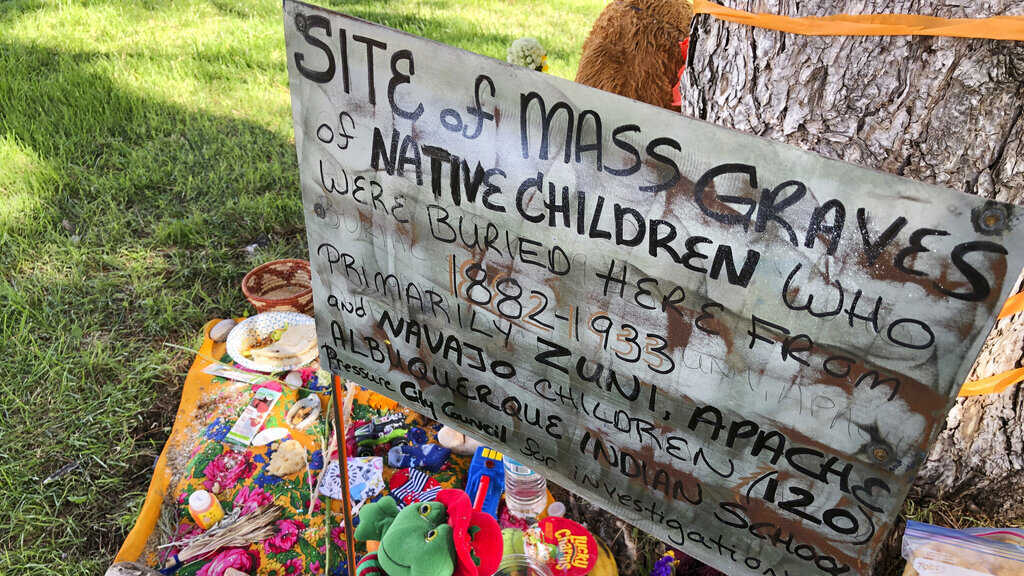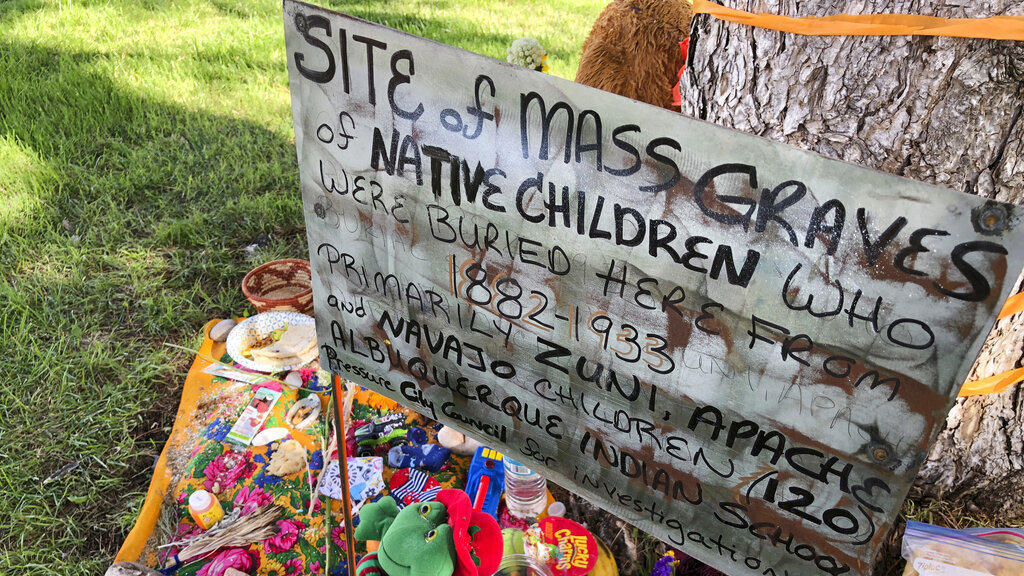
A makeshift memorial for the dozens of Indigenous children who died more than a century ago while attending a boarding school that was once located nearby is displayed under a tree at a public park in Albuquerque, N.M., in 2021. AP hide caption

A makeshift memorial for the dozens of Indigenous children who died more than a century ago while attending a boarding school that was once located nearby is displayed under a tree at a public park in Albuquerque, N.M., in 2021.
APLast year the remains of 215 children were found in unmarked graves on the site of a former residential school for Indigenous children in British Columbia. The news was shocking, but among Indigenous people of Canada and survivors of the country's boarding school system, it was not a surprise. For generations there had been stories of children taken away from their parents never to be heard from again. Those who did return told of neglect, abuse, and forced assimilation.
It's a brutal history that the United States and Canada share.
Shortly after the unmarked graves were found in Canada, US Secretary of the Interior Deb Haaland called for an investigation into US boarding schools. Her first report, released last week, identified more than 400 institutions operated or supported by the US government. At 53 of these schools, there are marked and unmarked burial sites with the remains of children who died there.
We hear stories from some of the survivors of the boarding schools and speak with Secretary Haaland about the ongoing investigation and a year-long listening tour to bear witness to survivors and facilitate healing.
This episode contains discussions of child abuse that some listeners may find disturbing.
Email us at
This episode was produced by Eliza Dennis. It was edited by Jeanette Woods. Our executive producer is Natalie Winston.

 Live Radio
Live Radio